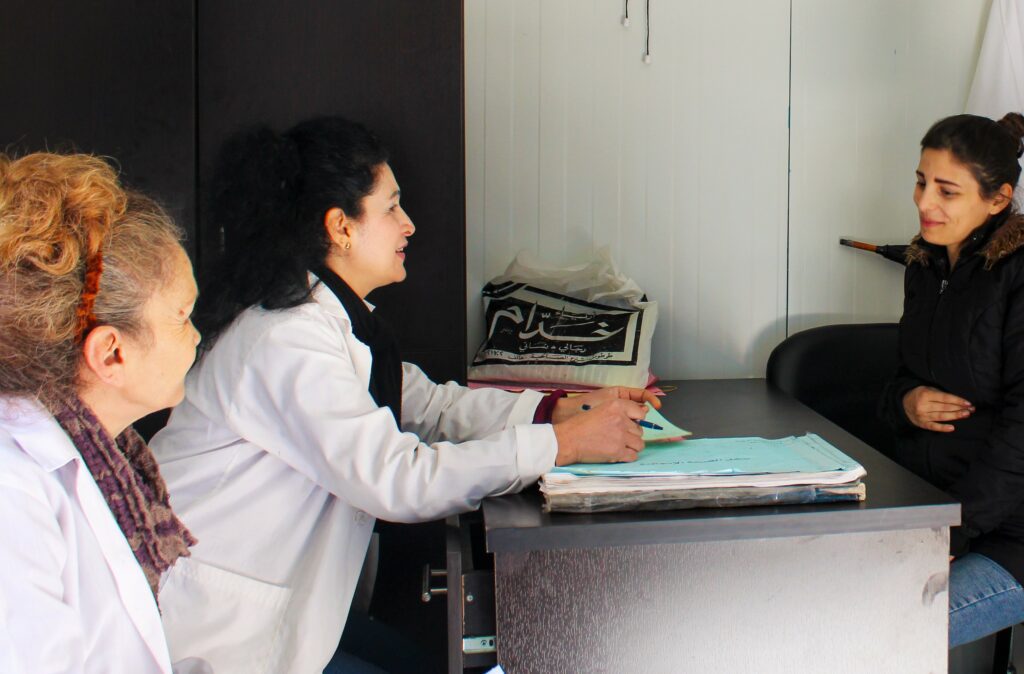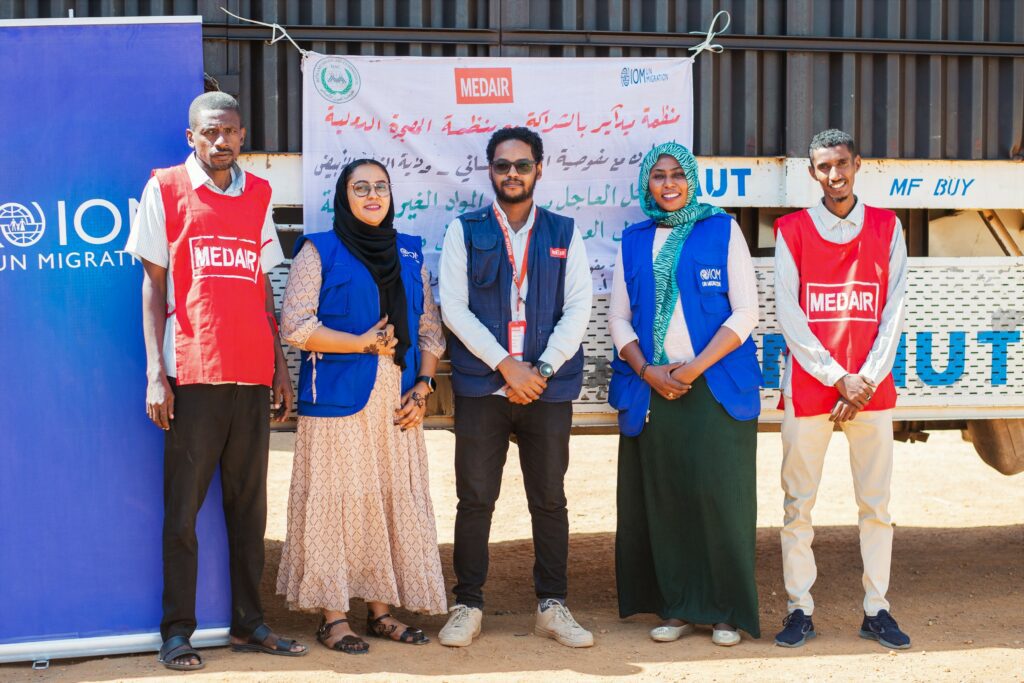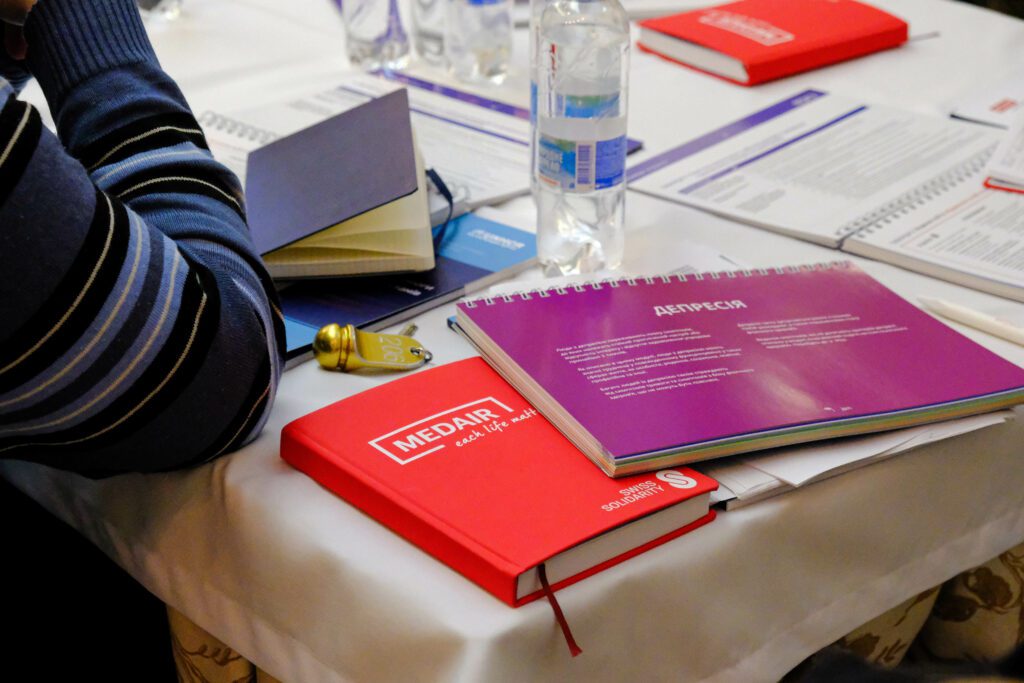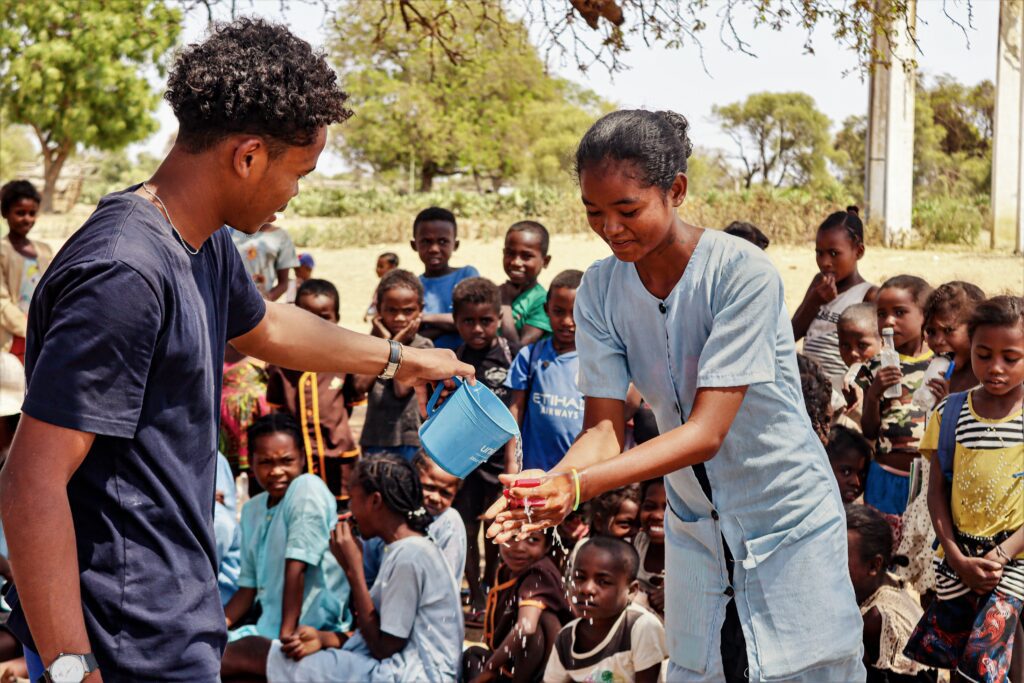The vaccine preventable disease, measles had brought worrying caseloads into the state’s clinics.
In response, Medair’s Emergency Response Team landed in Aweil North County to assess the situation first hand. A mass measles vaccination campaign launched in less than a week, in collaboration with local authorities and various humanitarian partners responding to the crisis. As teams travelled village to village, 48,000 children were vaccinated¹.
Only a few months later, thousands of children were at risk yet again: Levels of malnutrition in Aweil rose well above emergency thresholds, coupled with a sharp increase of malaria cases and limited access to safe water and sanitation facilities. Late rains and flooded crops worsened food insecurity in the region, compounded with increased food prices.
“The nutrition situation in Northern Bahr el Ghazal is one of the biggest malnutrition crises the country has seen in years,” shared Becky Hammond, Medair’s Medical Manager at the time. In parts of Northern Bahr el Ghazal, half of the population was facing severe food insecurity and one out of three people were malnourished.
Medair’s emergency response team provided critical services to the most vulnerable through three emergency nutrition clinics that treated children under five with acute malnutrition. A malaria treatment centre opened in Aweil Town, where the Medair teams saw 2,300 patients within one week in September 2016. Medair teams also provided emergency water, sanitation and hygiene support.
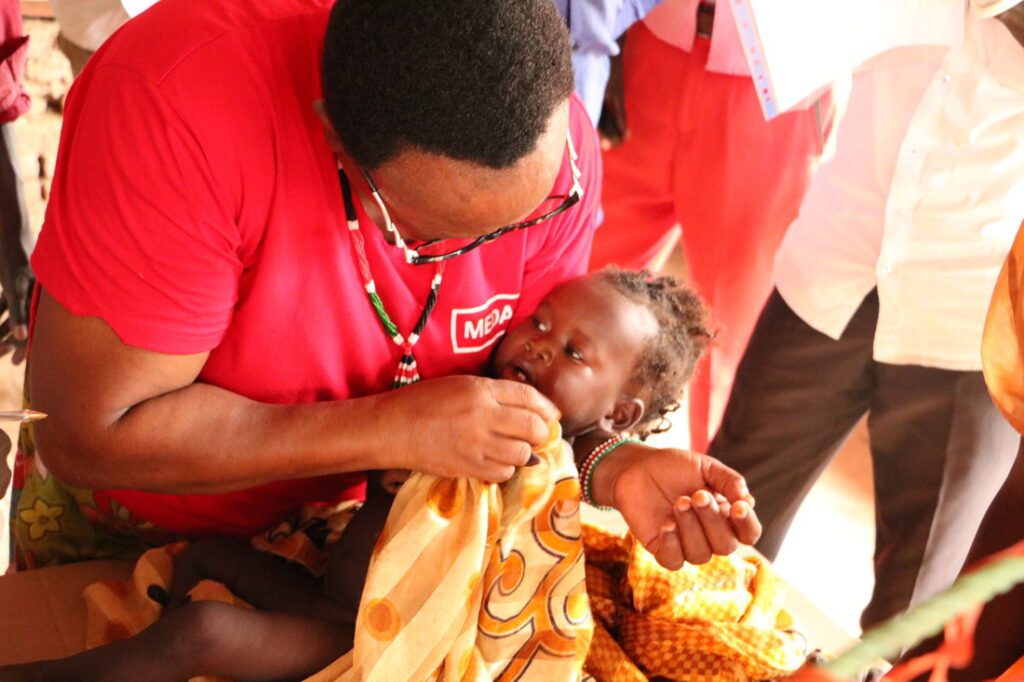
In August 2017, Medair staff, Mama Eunice, assists a child with malaria at Medair Maper health and nutrition clinic in Aweil, South Sudan.
When needs remained high, we established a long-term presence in Aweil and expanded programming to provide health services, nutrition interventions, and safe water and hygiene in the wider Aweil community.
Health:
Health services, focused on pregnant and lactating women, and children under five years of age. Teams provided common illness treatment for children under 5 years of age, such as malaria, pneumonia, and diarrhoea; routine immunisation against vaccine preventable diseases were also provided free of charge. Furthermore, Medair provided antenatal and postnatal care as well as skilled birth attendance to ensure safe deliveries. In 2020, Aweil’s Medair supported birthing centre assisted in 188 safe deliveries. With close collaboration, Medair worked with local partners and health services were fully integrated into nutrition programming.
Nutrition:
Outpatient therapeutic services and a Targeted Supplementary Feeding Programme served both moderately and severely malnourished children, as well as acutely malnourished pregnant and lactating women. Malnourished mothers and children received either a two-week or monthly ration of PlumpyNut—a peanut paste that supports recovery from malnutrition.
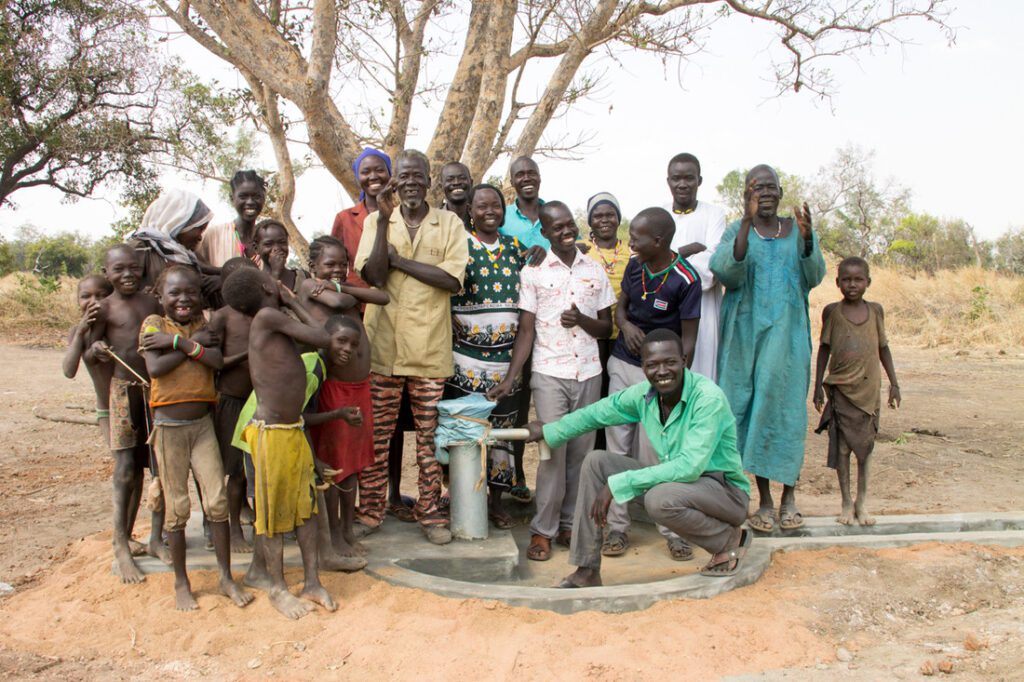
In 2017, Medair found safe water in Jelwan ,Aweil, South Sudan. Four years on, the town’s Deputy Chief, Uguak, shares, “We have water, safe water, for the children. The lives have changed because it’s safe water and children were sick before, and we’ve seen improvements. There were bugs in our old water and it was a far distance to reach.”
Water, Sanitation, and Hygiene:
The provision of safe water in Aweil contributed to the recovery of malnourished children and played a role in disease prevention and reduction of malnutrition within communities.
Aimed to support nutrition and health programming and improved access to safe water, sanitation facilities, hygiene services and waste management, Medair repaired and disinfected handpumps, repaired and constructed latrines and waste management structures, and installed functional handwashing facilities at health facilities where Medair provided services.
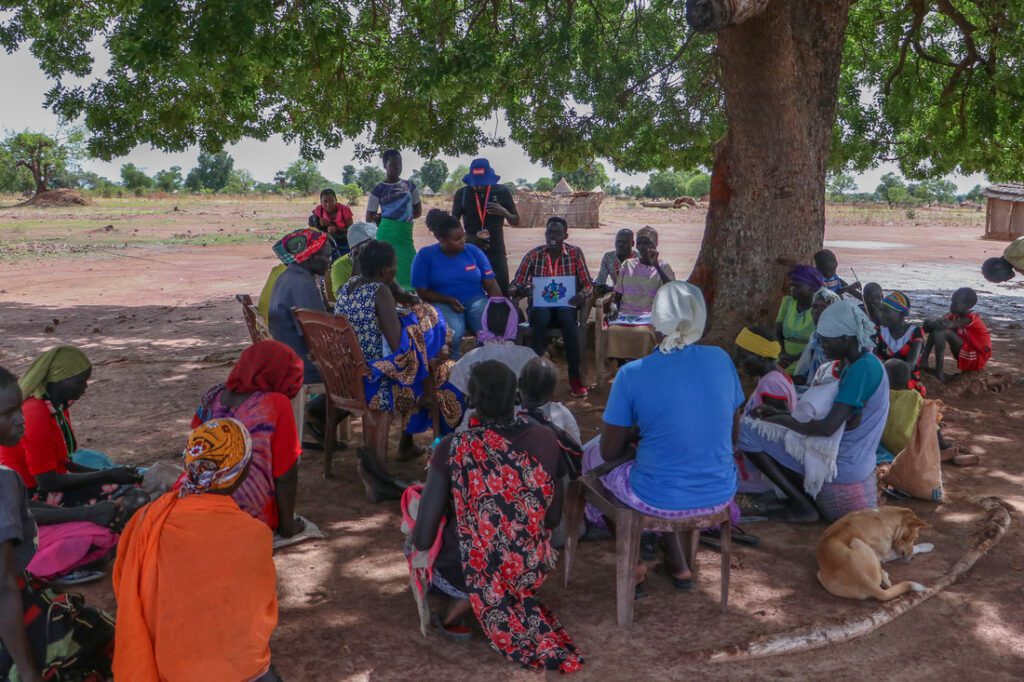
A care group gathers in Aweil in May 2019 to hear health messaging shared by Medair teams.
Behaviour Change Communication
Integrated into each programme activity, was behaviour change communication. Nutrition and Health Volunteers reached women in their homes and local communities with messages for health, nutrition and hygiene practices. Members of the community were trained by Medair on key health, nutrition and hygiene messages to share with their neighbours and fellow community members. This care group model trained ‘lead mothers’ to recognise the signs of malnutrition in children and in pregnant and lactating women to then recommend treatment at a Medair clinic.
In total, Medair served 17 communities over the past four years. Rates of malnutrition have decreased below emergency levels and Medair objectives have been achieved. It is time to hand over to local authorities and their partners.
The Director General of The Ministry of Health and Environment, Santina Chan Aweu, shares with Medair teams, “The area has improved and you have to appreciate that; there’s been capacity building opportunities in the region, and Medair has gone where no other NGOs have ever gone.
Medair works closely with the community and has high acceptance throughout; we’ll miss Medair and the community will too.”
As we exit our project in Aweil, we are proud of the work we’ve accomplished; proud of the teams we served alongside and of the communities we’ve had the honour to be welcomed into. It’s hard to step away from a community that is so near to our hearts, but we exit Aweil knowing that our work brought impactful change.
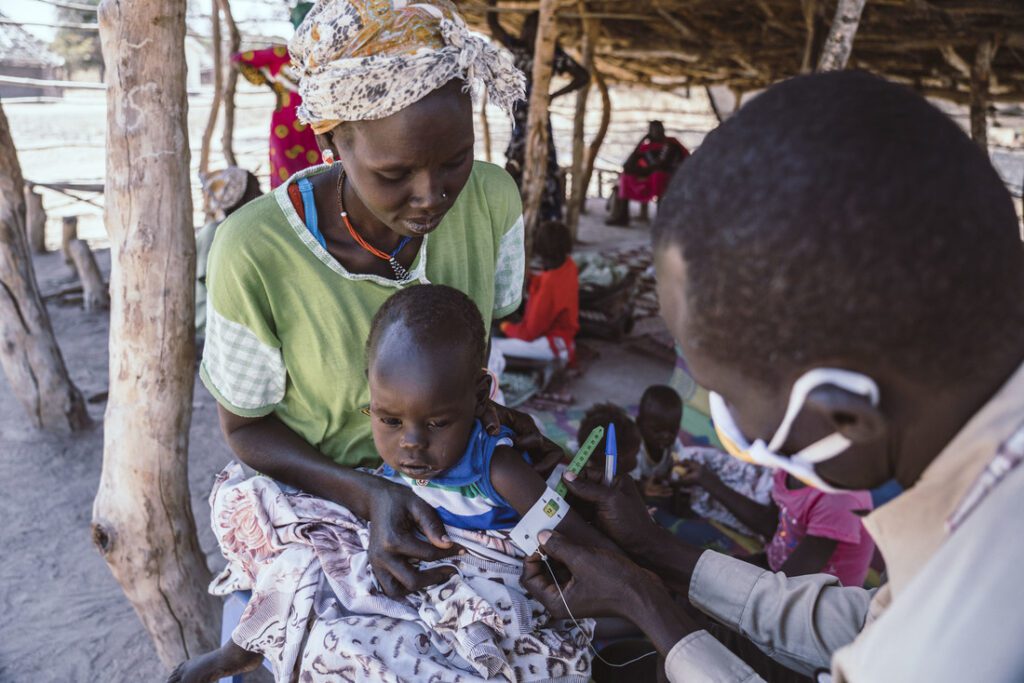
Title Photo: ©MAF/LuAnne Cadd
1 2016 Medair Press Release
Medair services in Aweil are funded by UK aid from the UK government, the United States Agency for International Development (USAID), and generous private donors.
This content was produced with resources gathered by Medair field and headquarters staff. The views expressed herein are those solely of Medair and should not be taken, in any way, to reflect the official opinion of any other organisation.


